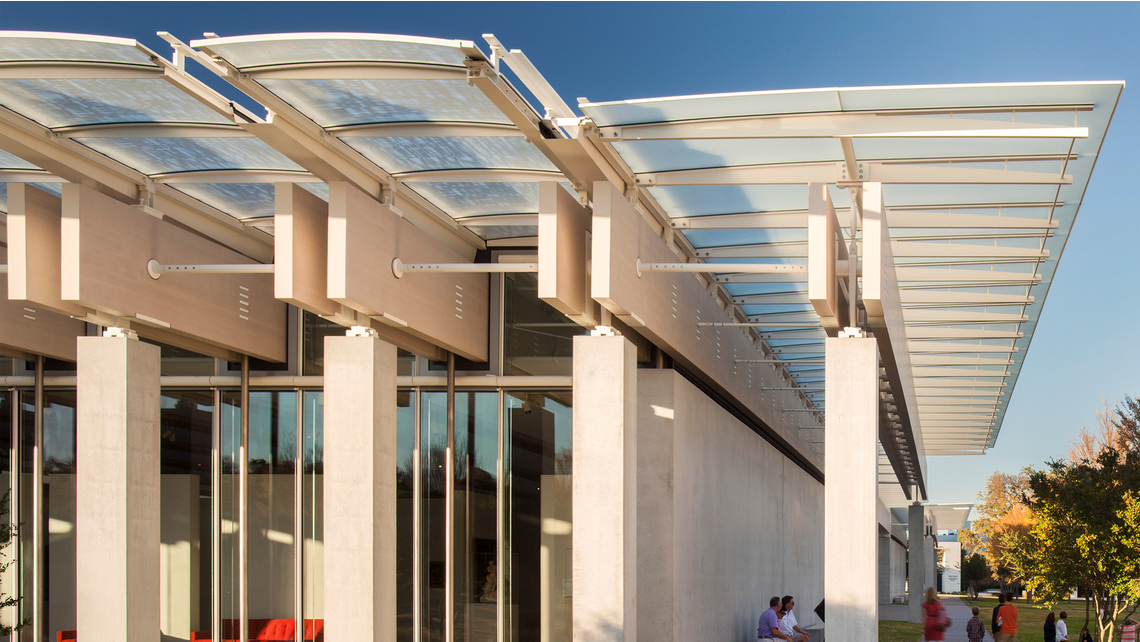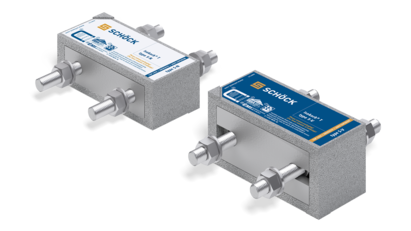Kimbell Art Museum Expansion

Canopy of Kimbell Art Museum in Fort Worth, TX

View from below canopy of Kimbell Art Museum in Fort Worth, TX
Renzo Piano Pavilion
The permanent art collection of Kimbell Art Museum now has a home in the Kahn building, allowing the expansion to the museum, with the Renzo Piano pavilion, to feature special expositions and education programs.
The Renzo Piano expansion adds 90,000 sq. ft. to the Kimbell Art Museum, featuring bays and a louvered roof system with photo-voltaics. The new energy efficient Piano pavilion resembles the Kahn's building in height, scale and general layout, yet it is designed to be more open and transparent. Renzo Piano displays his appreciation for natural light, yet remains dedicated to the goal to incorporate energy savings, with an innovative roof system.
Energy Efficient Strategies
The Piano Pavilion integrates various energy efficient strategies that reduce the new structure's energy requirements to just half that of the Khan building. "Because only a third of the interior is above ground, the museum will see greatly reduced demands for heating and cooling," says Renzo Piano in a press release. The pavilion also features a publicly accessible green roof, solar panels and structural thermal breaks.
The building is aiming for carbon neutral, and incorporates Isokorb® T structural thermal break elements for steel connections as well as concrete for the connection at the parapet to the roof.
Roof of Wooden Beams with Steel Connections
Isokorb® T connections are incorporated in the roof system of the eastern part of the building. The roof is supported by a total of 29 pairs of 100-foot wood beams. The laminated wood beams include steel headers and are connected in pairs with Isokorb® T providing a column-free space for the full width of the 102-foot bays. The wood beam pairs are connected by Isokorb® T type S, steel connections, at the beams steel headers. Each pair of beams weighs 15 tons (30,000 pounds).
The roof system includes fritted (frosted) glass which supports solar cells to collect energy. The solar cells are on adjustable louvers, which allow the control of light in the building. In addition, Isokorb® T type S can be found at the entry, where the roof cantilever shield the building's glass front and interior from the sun. The wooden beam system was designed in collaboration with the New York–based Guy Nordenson and Associates as structural engineers.
Parapet Walls with Concrete Connections
In addition Isokorb® type CM for concrete connections is found in the parapet wall connected to the 9" thick concrete roof, which is now covered by luscious grass. Isokorb® provides a thermal break from the concrete roof connection to the parapet. The Isokorb® was installed and the concrete was poured by Capform of Carrollton, Texas.
Renzo Piano Building Workshop and Kendall/Heaton Associates, Inc.
Guy Nordenson & Associates
Beck Group
Paratus Group
2007-2013
FRONT
Capform



